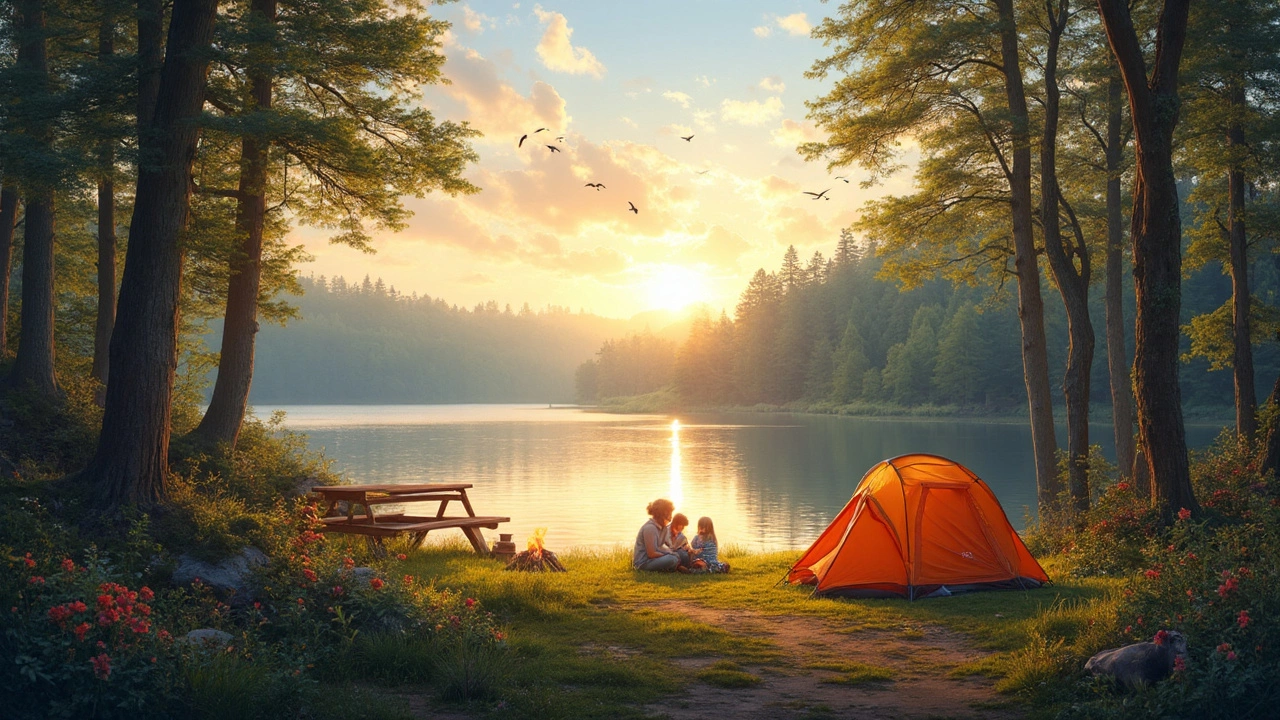Lake Camping Guide: How to Make the Most of Your Lakeside Adventure
Camping next to a lake feels like instant relaxation. The water’s edge, the sound of waves, and sunrise over the surface are hard to beat. But a great lake campsite needs a little planning so you avoid soggy gear and noisy neighbors. Below you’ll find the basics that turn a simple trip into a stress‑free memory.
Why Choose Lake Camping?
Lakes offer fresh water for cooking, cleaning, and even a quick swim on a hot day. The flat shoreline makes it easy to set up a tent, and the scenery is perfect for photos. Kids love watching fish or skipping rocks, and adults enjoy the calm that’s hard to find inland. Plus, many lakes have free or low‑cost spots managed by local councils or trusts.
Essential Gear and Safety Tips
First, bring a groundsheet that can handle damp ground – a cheap plastic tarp works fine. Pack quick‑dry clothing; you’ll get wet if you splash or if dew settles overnight. A waterproof poncho or rainfly is a must, as lakeside weather can change fast. Don’t forget a small pump for inflating an air mattress – a comfy night on damp ground is a no‑go.
Safety starts with knowing the water depth. Swim only in designated areas and keep an eye on kids at all times. If you plan to fish, check local licences and rules. Bring a flashlight with extra batteries for night trips, and store food in sealed bags to avoid attracting birds or squirrels.
When you arrive, scout the spot. Look for a level area away from the water’s edge to avoid waves or rising water if it rains. Set up your tent with the door facing away from the wind. If the campsite has a fire pit, use it only there and fully extinguish the fire before you leave.
Cooking by the lake is easy if you bring a small portable stove. Use a windscreen on windy days; otherwise the flame will flicker and you’ll waste fuel. Remember to pack biodegradable soap and a wash basin so you can clean dishes without polluting the water.
For a comfortable night, bring a sleeping pad that insulates from the cold ground. A simple pillow or a rolled‑up jacket works just as well. If you’re camping in a caravan or motorhome, park on firm ground and turn off any engine leaks to keep the area clean.
Finally, leave no trace. Pack out everything you bring in, especially food scraps. A quick sweep of the site before you head home keeps the lake beautiful for the next camper. Follow these tips and you’ll enjoy a relaxed, safe lake camping experience every time.
-
 VIEW POST
VIEW POSTHow Much Does It Cost to Camp at Bass Lake?
Feb, 20 2025|0 CommentsDiscover the costs associated with camping at Bass Lake, a popular destination for outdoor enthusiasts. This article breaks down the various fees, from campsite rentals to additional expenses like equipment and activities. Learn interesting tips for budget-friendly camping and explore what Bass Lake has to offer. Perfect for those planning a getaway on a budget.